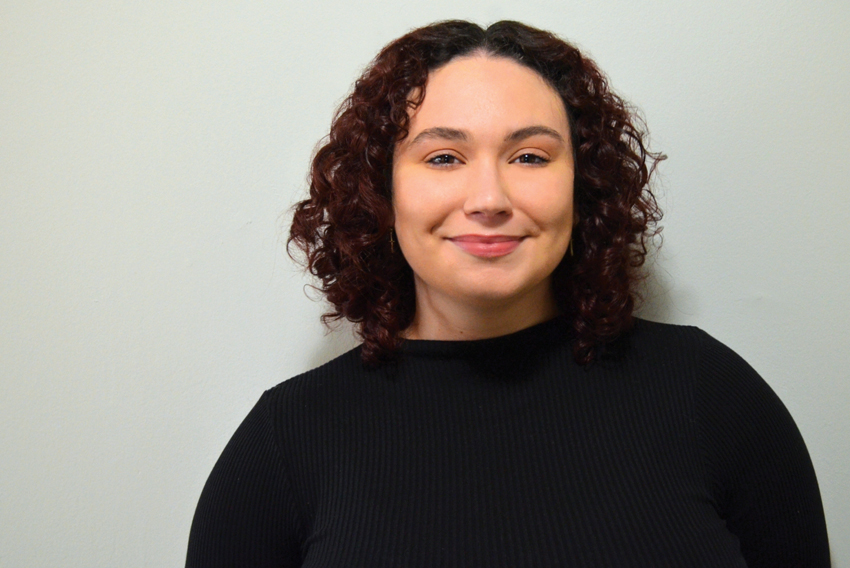Patterns that need breaking
Reprinted from the The Vibes Are Off: Young People, Anxiety and Depression issue of Visions Journal, 2025, 21 (1), pp. 18-19

I threw up the morning I moved into my university dorm.
It wasn't an uncommon occurrence. With my inherited anxiety and severe gluten intolerance, I probably spend more time crouched in front of a toilet than the average person.
We got to campus an hour late and I did my best to act like nothing had happened. Once everyone's parents had left, I forced out my prepared speech about how I'm a little quiet at first, but not because I'm cold or distant—I just struggle sometimes socially.
That first day would set the pattern, of trying to power through my anxiety, that I would keep returning to throughout university—one I never fully learned how to break.
Student life
I was anxious all the time. It got easier for a while: I made friends and adapted to living on my own. But there were days when I just wanted to hide under the covers of my twin-XL bed, and one offhand comment could bring me near tears.
It's hard to pinpoint when things got worse. During a student exchange to the UK I found myself alone again in an unfamiliar place. I wandered the campus feeling empty and hopeless. When I wasn't doing that, I spent most of my time in my room, watching everyone else make plans in the exchange students' group chat.
Everything worked out in the end. I made friends and had the time of my life. When I returned to Canada, I thought this pattern would hold.
It did not.
I struggled to complete school work, turning things in at the last minute. Some nights I couldn't sleep at all; some days all I did was sleep. My friends were concerned, so I went to my doctor, who started me on antianxiety medication and therapy. I threw up again that night. Then, halfway through the next day, a calm settled into my bones.
For the first time, it felt like I had things together. I got accepted into my dream postgrad school and was set to graduate with honours.
Pandemic stress
Then COVID hit. I struggled to focus during remote learning. Getting myself to study for finals or cobble together essays when the world was falling apart seemed impossible. I dragged myself over the finish line and thought that was it. I'd done it again. I was still capable. While I delayed my master's degree by a year and was still anxious, after lockdown I was excited to move across the country and start my new life.
The first few months of grad school were great. I was living in my favourite city and attending my dream journalism program. My roommates were my best friends. I remember several mornings waking up bathed in sun and thinking, this feels like a movie.
But that winter I found myself in bed more and more, sleeping weekends away and spending weeknights staring at the ceiling. The longer I spent in my program, the less sure of myself I became. My cup has never exactly runneth over with confidence, but I'd always been good at school and writing. It was a part of my list: Alex, glasses, curly hair, good grades, writer. But my grades were slipping, and I hadn't written anything outside of school in half a decade.
Who was I if I wasn't those things anymore?
Losses and pressure
I lost a close family friend that spring. Not long afterwards, I lost two more loved ones: my last surviving grandparent and my beloved childhood dog. Each loss knocked the wind out of me.
Even with accommodations from my program heads, I was struggling to keep up. I thought it was my medication, so in May, I made the executive decision to quit my antidepressants cold turkey. This went about as well as you could expect. I spent a whole night sick with SSRI withdrawal.
My roommates later told me that my actions had terrified them. And I worried them a couple more times after that, but I also restarted therapy and promised I wouldn't do it again.
Yet by October of my second year, I was turning in assignments late and refusing to ask for extensions as some weird way to punish myself for not meeting deadlines.
I returned to the doctor, who upped my dosage. If anything, that made things worse. "My most common emotion right now is existential dread," I texted my best friend in February. I was in pure survival mode, counting the days until my program was over.
I graduated by what felt like the skin of my teeth. When I walked the stage a month later, I wasn't happy or excited or proud. Just relieved.
Anxious cycles
Almost two years later, I'm a lot less anxious. I switched meds a year ago, and they work better for me. I don't throw up as often, but my baseline heart rate is probably still above 85 on a good day.
When I look back on my university experiences now, I grieve what could have been. Where would I be if I didn’t have to deal with anxiety? Who would I be?
But I do know if I'd reached out for help earlier, or advocated for myself a little more firmly, things might have been easier. I was stuck in a recurring pattern. But some patterns need to be broken, and I was the only one who could do it. I just wish I'd learned how sooner.
About the author
Alex (she/her) has a Master's in Journalism and almost a decade of experience in digital content creation and writing. She now uses her training and experience to support the causes she believes in. In her free time, she likes to read, try new recipes and explore video game worlds
